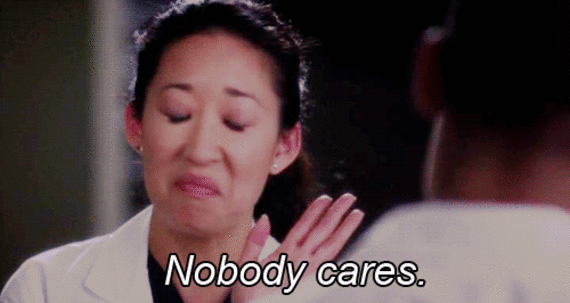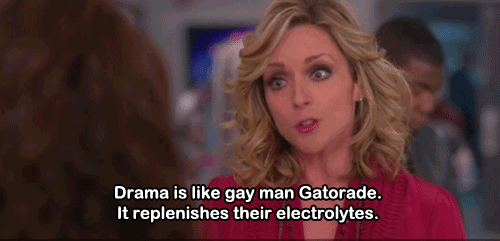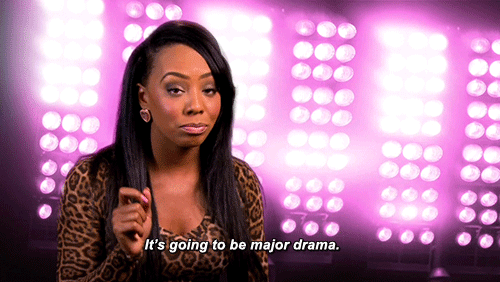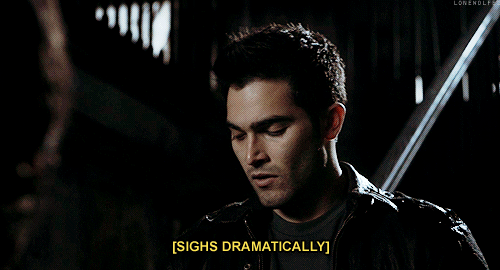Fellows Friday 
Steve Boyes is passionately devoted to the preservation of wilderness, as well as to restoring and protecting species and landscapes already damaged by human intervention. At TED2014, the ornithologist and National Geographic Emerging Explorer spoke to the TED Blog about his work to save South Africa’s endangered Cape parrot and his campaign to get the Okavango Delta listed as a UNESCO World Heritage site. Oh, and he also walked us through the profound experience of being a tiny human in the midst of Earth’s primordial wilderness. Below, an edited transcript of our conversation.
Why is wilderness important?
Wilderness cannot be restored or recreated—only destroyed. We are about to lose the last glimpses into prehistory that connect us to a time before modern man. By wilderness, I mean places untouched by modern society that are capable of completely taking you away, bringing you to tears, making you feel spiritual — all of those things that people go into nature to find. I firmly believe that in the next two decades, humans will lose our last true wilderness areas if we do not focus on preserving them.
My long-term research and expeditions focus on the future of the Okavango Delta — Africa’s last-remaining wetland wilderness, located in northern Botswana. This untouched 18,000 square kilometer alluvial fan is the largest of its kind, and is supplied by the world’s largest undeveloped river catchment — the mighty Kavango Basin. The Okavango Delta is home to the largest-remaining elephant population and keystone populations of lion, hyena, giraffe and lechwe antelopes. It’s the size of Texas, and visible from space.
Every year, my team and I pole ourselves in dugout canoes — called “mekoro” — across the Okavango Delta, guided by baYei people, who have lived in harmony with this environment for hundreds of years. Accessing the central wilderness of the delta takes eight days, and the baYei’s mekoro are the only craft that can get us there. Twenty years ago, the journey would’ve taken two hours in a boat out of the only nearby town, Maun. It’s an indicator of how far the wilderness area has retreated.
These 340-kilometer research expeditions take us 15 to 18 days through the unexplored central wilderness. It’s a scientific investigation — we are establishing baselines for biodiversity so that we have a point of reference when things change, as they inevitably will. This pristine delta and river are threatened by irrigation schemes, agricultural development, hunting, overfishing, mining exploration, poaching, tourism and population increase, all of which have already had an impact.

The Okavango Delta expedition team cross the vast wetland in the only possible form of transportation, a dugout canoe called a “mekoro.” Photo: Wild Bird Trust
You are an orthinologist, so your first love is birds, right? What is the link between your study of birds and your work preserving the Okavango Delta?
Put simply, birds can choose with their wings. When things go wrong in an ecosystem, they will simply not return. One of our projects in the Okavango Delta is the Okavango Wetland Bird Survey. It is a broad-based biodiversity survey that focuses on birds as bioindicators of significant change in the water and islands of the Okavango. You’ll see all the storks come in, check it out, go hmm, and go somewhere else — and maybe die in the process. But they’ll leave. It’s almost instant. One year they’re there, and the next year they’re gone.
As for how I got to the Okavango in the first place—I did my Ph.D. on the Meyer’s parrot, which thrives there. The Meyer’s parrot is the most abundant, widespread parrot in Africa, with massive distribution and six subspecies. It’s a highly successful parrot and typically lives in remote river valleys throughout the African subtropics. It’s a close relative of the South African Cape parrot — which is, in contrast, Africa’s most endangered parrot. Yet we knew nothing about the Meyer’s parrot. I wanted to help the Cape Parrot, so I went to the Okavango to learn the Meyer’s parrot’s secrets as to why it’s so successful. I’ll tell you one: Meyer’s parrots are the only hole-nesting birds that breed in winter in the Okavango Delta, because they are the only animal that feeds on an abundant supply of insect larvae pupating in seed pods. I wanted to learn things like this, to take to the Cape parrot and try and create context for them.

The Wild Bird Trust works to restore the population and forest habitat of South Africa’s endangered Cape parrot. Photo: Wild Bird Trust
When I’m not in the Okavango Delta, I’m back in South Africa working on the iziKhwenene Project — iziKhwenene means “Cape parrots” in isiXhosa. We work with local communities of the Amathole Mountains, teaching people how to rehabilitate the forest ecosystem that the birds rely on. Together, we are restoring Afromontane forest patches by planting thousands of indigenous trees and creating protected areas. We also support Cape parrots by administering vaccines, building nest boxes and offering supplementary food. Rebuilding destroyed forest requires the participation of local communities over generations. So we are establishing a conservation culture, capturing the imaginations of local children and providing jobs for their parents. And it has worked: once the Cape parrot was never mentioned, but it is now widely known in South Africa, especially in the villages below the Amathole Mountains. Local community members now shout “iziKhwenene” in joy as we drive past in one of the project vehicles.
Together, the iziKhwenene Project and the work in the Okavango Delta grew and grew until we needed to establish the Wild Bird Trust in 2009. We want to use endangered bird species as ambassadors for threatened ecosystems. So, it is really all about birds and people. We cannot exist one without the other.
Your tales of visiting the Okavango Delta are thrilling. Tell us more about the experience. Who goes with you?
We have two research camps, which we visit seasonally. One’s testing nest boxes, so we learn about what Meyer’s parrots need and can take this information to the Cape Parrots and their nest boxes. The other one is focused on wetland birds. This camp is more accessible and can accommodate volunteers and scientists. There are three camp managers, who cook and so on, that travel with us. Each year, we also do a crossing of the delta to which we add one writer, one filmmaker and one blogger.
I believe that one of the key things we need to do to preserve wilderness is to convince millions of people around the world to protect landscapes and wilderness areas they’ll never visit, because they simply can’t. We want to share our experiences, so they know these places exist and are important. The Into the Okavango website, an open-access site where we upload and track data in real-time during our journey, allows the world to follow us and experience what we’re experiencing firsthand. It’s about inspiration.
We have a core group of outdoorsman and scientists that engineer their annual calendars to accommodate these annual expeditions across the Okavango Delta. We will all continue doing this for the foreseeable future.

Surrounded by wildlife in the Okavango Delta. Photo: Wild Bird Trust
Aren’t these people afraid to enter such wilderness? What’s it like?
Often production people don’t have any wilderness background, but I’ve guided for 15 years. I know how to take care of people in the wilderness, and how to support a wilderness experience. When I take you, I’m going to prepare you with a lot of talking around the fire. For example, you’ll have to be a vegetarian the whole time. You will have the bare minimum of gear — no possessions. From the first day, when you get out into the landscape, you’ll be on the water—at one with nature—exposed for three weeks.
Every day on expedition we have to be off the water by 4 o’clock, because we typically use hippo paths to travel by day—the hippos use them at night. So well before sunset we’re out of the water and setting up camp. You set your tent up. I say, “I’m going to give you a little three-legged stool. You can take a notebook with you, you can take binoculars, a bird book, a little flask of whiskey or tea, whatever you want. And you’re going to walk off, and you tell me where you’re going.” You walk and open yourself to the reality of this place. You must feel and recognize the anxiety building inside you. When it becomes too much to go any further — it could be 10 meters, it could be 100 meters, it’s up to you — you must stop. Find a place up against a tree, on a termite mound. Put your things down. And you sit. You’ve seen all kinds of wildlife that day and now, in this remote place, there are ultimate consequences — we must be all very aware of that. I’ve got a great medical kit and am qualified as a caregiver, but I’m not a medical doctor. We’ve got medical evacuation support: a helicopter could be here in the daytime, within an hour or two, but at night you’re on your own for 12 hours. So you can’t take any risks, and I’m very clear about that. I say, “You’re going to start to see the sun setting—that’s the next source of anxiety. It’s going to build and build until it gets too scary and you cannot handle it anymore. At that point, you walk back to the fire.”

Huddled around the campfire. Photo: Wild Bird Trust
That’s the process of linking a person into that wilderness experience, into the reality of that place they’re in and into themselves. You just sit there quietly and listen. Don’t focus on that feeling of anxiety, just be mindful of it, because it’s telling you when you must go. These are powerful experiences for people, where they get in touch with their own survival instinct speaking to them, as well as a landscape. That can teach you — it is a bit of a cliché — how small you are.
Once you’ve gone through eight days of that, you’ve arrived — it is literally a wonderland, a wilderness beyond comparison. It is thousands of birds, it is hundreds of elephants, it is so many lions at night that you don’t know what to do. They are everywhere. So many hippos. You’ll have a clan of 50 hyenas come at some point in the night, running around the camp, trying to see what is going on. They’re very inquisitive animals that inspect and break everything in a matter of minutes.
How do you protect yourself from the lions and hyenas and elephants?
Don’t need to. They have no interest in human beings. You just have to be a calm, normal human, and these animals do not consider you prey — they’re very scared of you. It’s just if you are drunk, or trying to hurt them, or doing something odd. These animals know that human beings are the most dangerous thing they’re ever going to see in the wilderness, and they’ve known that for 100,000 years. You just respect all wildlife, and you’re safe. Live mindfully and live calm — you’ll be safe.
When we first accessed this wilderness, it hadn’t been seen for 60 years. It had been cut off from the world. And before that, people had only really visited it for another 60 years. Before that, not one human being had been in there. It’d have been impossible, the technology didn’t exist. The first time we got in there, there was a small group — about four of us. Everyone had gone off to do their walkabouts. They were all sitting somewhere; I didn’t know where they were. These two elephant herds — bachelor herds — come onto the small island and they’re [makes growling/roaring sounds] hitting the palms. Chaos ensues. Dust going up. And then I see — doop! — like meercats: my brother’s up, Giles is up, Pete’s up, I’m up. This was the first time on the expedition that I knew exactly where they were sitting. I was sitting under a sausage tree completely overwhelmed by this place.

Elephants at sunset. Photo: Wild Bird Trust
I wanted to know what they were feeling after discovering this place for themselves. So I went to speak to each of them and—whispering, like we were in a church—asked, “Well, what do you think?” Every single one of them just cried, and cried, and cried. And I cried with him, and I cried with the next guy. Because it was just — you try to say something about an elephant, or you try to say something about a lion, but you cry. It’s happened many times since.
That’s what we might lose—these places. There’s no doubt in my mind that true wilderness is the birthplace of all religion. It’s where Muhammad, Moses, Jesus — they all went into the deserts, the mountain, and they sat quietly. It’s exactly like I make people do. If we lose that, we will lose the secrets that those guys were given, whether it’s on a tablet or in a book. Those were important secrets that helped societies continue for thousands of years. We need to be able to sit silently in the wilderness to listen to the universe and ourselves.
Buddha under the tree?
Yes. I believe that in the next few decades we’ll lose that tree, those last wild places. There’s not much left. Meditation is our only hope after the last wilderness goes. I don’t meditate, perhaps because I am addicted to wild places that bring me into that state instantly.
But the “wild” is not only found in remote, faraway places. In many of my talks about wilderness, I’ll say, “Picture yourself. You’re sitting at home, reading a book in your favorite room. It’s late at night and you’re calm. The lights suddenly go out. It’s pitch dark. The hum of the refrigerator down the hall that you rarely hear, but was always there, is gone. It’s that eerie silence. That’s the ‘wildness’ saying, ‘I am here. I am never going to go away. You just need to be quiet to see, feel and hear me.’”
Our planet will die and all will go gray if we lose our connection to true “wildness.” It’s always there. It’s the fabric of the universe. That’s what we must tune ourselves into. It’s overwhelming, and direct, and fluid in the wilderness. But come home and you will find it in the park, in your favorite river, that hike you love, the pond your kids play in. One of the best places to experience it is swimming in the ocean, feeling that anxiety and wonder building.
Above: watch a trailer for the upcoming feature documentary Okavango, which folllows Steve Boyes and his team of explorers on their epic journey into the primordial wilderness of Botswana’s Okavango Delta. Their mission: to ensure the preservation of Africa’s last-remaining wetland wilderness.
During the next couple of years, you’ll be filming a feature documentary on the Okavango Delta, in partnership with National Geographic. What is your aim for this film?
We believe that the only way to save the Okavango Delta is by building a global movement to preserve the Kavango Basin as a multinational UNESCO World Heritage Site. The documentary is in service to that goal. In 2015, we will undertake a 3-month, 2,200 kilometer expedition down the length of the Okavango River in dug-out canoes. It’s not just about the adventure: the research data that will be generated by our team of experts — a botanist, zoologist, ichthyologist, herpetologist, ornithologist and sociologist — will provide the maps and media to motivate the establishment of the first protected areas in the catchment. As we travel, we will also share this impossible expedition down the world’s wildest river live with the world like never before, through the Into the Okavango website. We need to whole world to want to care about preserving the Okavango Delta, just to reserve the opportunity to one day visit this primordial wilderness.

Greeting the wild. Photo: Wild Bird Trust
How do you live? When you’re not out in the delta, are you in an urban area?
I live on a 25-acre property in Hogsback Village on Hogsback Mountain in the Amathole Mountains, where we run the iziKhwenene Project. About 80 people live there. My wife, newborn son and I live a normal life with television and iPods. We love community life and being able to work for a landscape and a species. When Jack gets older, we will move back to Cape Town to give him every opportunity to be who he wants to be.
More than half the world’s population now lives in cities. Do you see a profound disconnect from nature?
There is, and I do feel it when I speak to people. But there’s not one person I’ve met that cannot share these experiences with me. It’s innately in everyone. We just do a really good job of forgetting, and an even better job of creating extremely dynamic, interactive lives around us that are more than we can handle. We don’t need anything else, so we don’t think about anything else. Our lives in the cities are very full. Because we fill them.
We need to bring more nature back into the cities. We can grow vegetables on the walls of buildings, we can put forests on the roofs. We can use our waste products to fertilize urban gardens and even woodlands. We even have computer programs that can help us design these landscapes. There’s so much we can do—it’s just an investment of time and a little bit of brilliance. We are brilliant creatures. Overall, we need to consume less and share more because community means everything.
Some of the people I live with and work with in the Okavango Delta have no education. They see the world completely differently, and speak in a completely different way. Their language is cyclic, very slow and almost hypnotic. We must not forget them. Their lifestyle is the reason we have a green, wonderful planet. Our lifestyles are not manifesting that at all, so we must celebrate them more.
This is the greatest challenge of the global conservation movement going forward: how do you convince billions of people around the world that have no opportunity to even see nature or stars to care enough about it to conserve it? We need to figure out how to make nature part of our daily lives again, no matter where we live.
TED Fellows is a global network of 300 innovators and trailblazers from a wide spectrum of disciplines. Read more about this community and how to become a part of it »
View the original article here

















 The Okavango Delta expedition team cross the vast wetland in the only possible form of transportation, a dugout canoe called a “mekoro.” Photo: Wild Bird Trust
The Okavango Delta expedition team cross the vast wetland in the only possible form of transportation, a dugout canoe called a “mekoro.” Photo: Wild Bird Trust The Wild Bird Trust works to restore the population and forest habitat of South Africa’s endangered Cape parrot. Photo: Wild Bird Trust
The Wild Bird Trust works to restore the population and forest habitat of South Africa’s endangered Cape parrot. Photo: Wild Bird Trust Surrounded by wildlife in the Okavango Delta. Photo: Wild Bird Trust
Surrounded by wildlife in the Okavango Delta. Photo: Wild Bird Trust Huddled around the campfire. Photo: Wild Bird Trust
Huddled around the campfire. Photo: Wild Bird Trust Elephants at sunset. Photo: Wild Bird Trust
Elephants at sunset. Photo: Wild Bird Trust Greeting the wild. Photo: Wild Bird Trust
Greeting the wild. Photo: Wild Bird Trust Time has given its annual list of the
Time has given its annual list of the  Fuckin’ A–it’s finally here!After fantasizing about starting a podcast for nearly two years, after being asked hundreds of times,
Fuckin’ A–it’s finally here!After fantasizing about starting a podcast for nearly two years, after being asked hundreds of times, 




